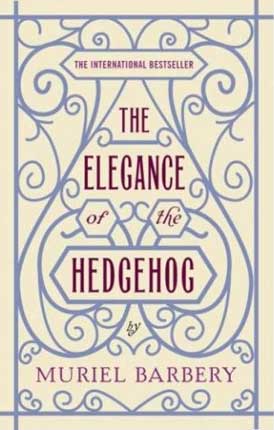The Elegance of the Hedgehog, By Muriel Barbery, trans. Alison Anderson
A cuddly tale of philosophy and beauty – with nasty barbs

In France, Muriel Barbery's novel has been a sensation both critical and popular. The hedgehog of the title is Renée Michel, a 54-year-old widow who is concierge of a swanky Parisian apartment block. To all outward appearances, she conforms to the stereotype of the concierge, dumpy, plain and slow-witted. But secretly, she is a passionate aesthete and autodidact. When she isn't spending time with her beloved Tolstoy or weeping over her favourite Ozu film, she is mastering Kantian idealism.
Coincidentally, another of the block's inhabitants, 12-year-old Paloma Josse, is also a secret intellectual: alienated from her bourgeois family and precociously alert to the futility of life, she has decided to commit suicide on her 13th birthday. In the meantime, she keeps a diary of "profound thoughts" in which she jots down haiku and tanka. Both lives are transformed by a new tenant, a retired Japanese businessman called Mr Ozu. He quickly discerns Renée and Paloma's intelligence and taste; he and Renée begin a sentimental friendship based on a shared love of beauty. The slight plot is punctuated by meditations on the beauty of nature and language, and by Renée's philosophical musings.
Though Barbery adopts the hedgehog as her governing metaphor, the book is a hedgehog turned inside out – superficially warm and cuddly, but with some nasty barbs within. Renée worships Tolstoy, but there is no sign that either she or her creator has learnt complexity or humanity from him. The supporting characters are, by and large, drawn with barely inflected contempt.
Despite the name-checking of philosophers, composers and novelists, the mood is subtly anti-intellectual: people who seem clever are just showing off. The book flatters the reader, offering reassurance that untutored instinct is truer than the opinions of so-called experts. Matters aren't helped much by Alison Anderson's translation, which too often mimics the structure of French sentences, and slips into translatorese, the English dialect in which all colloquial phrases are equally appropriate. But I doubt that she could have done much to make it a saleable proposition on this side of the Channel.
Join our commenting forum
Join thought-provoking conversations, follow other Independent readers and see their replies
Comments
Bookmark popover
Removed from bookmarks